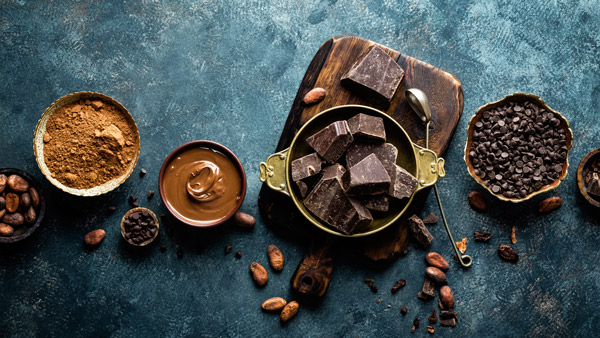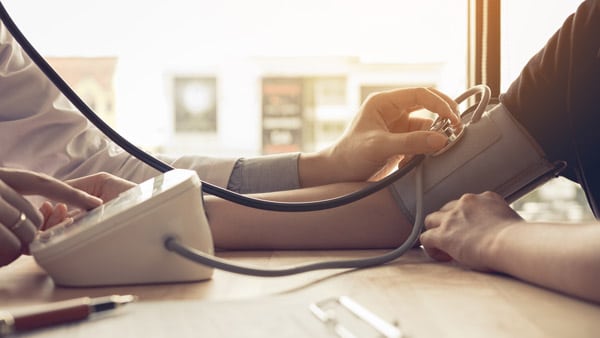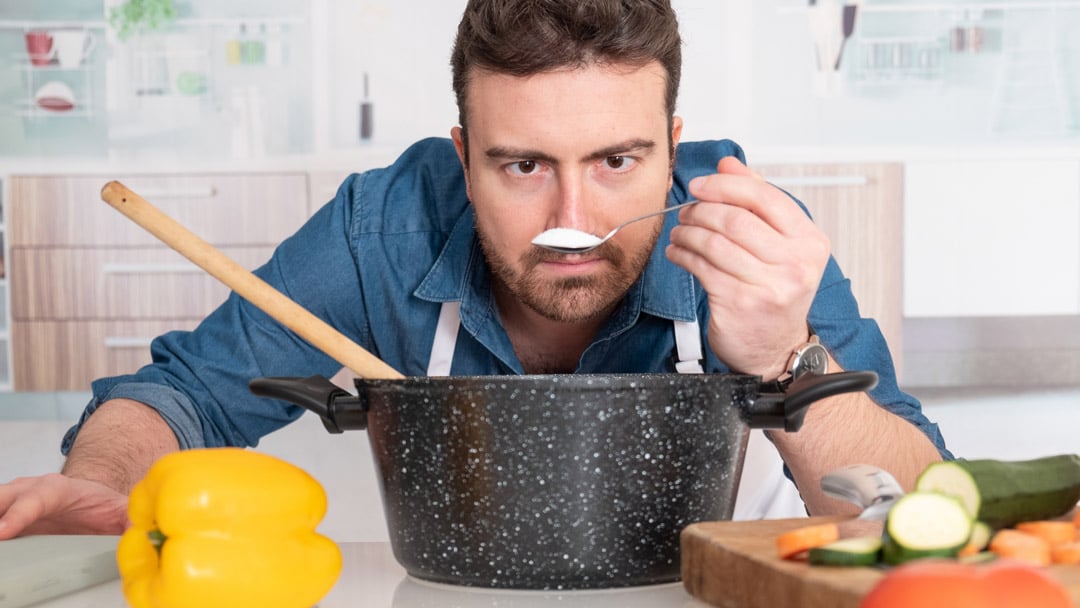As a registered dietitian with TELUS Health MyCare, I’ve heard it all, and the “what we don’t know can’t hurt us” really does more harm than good. In many situations, the saying is harmless and even funny: When a friend doesn’t know he has mustard on his chin, for instance, or when someone exits the bathroom with toilet paper stuck to their heel. The longer it trails along behind them, the funnier it gets!
High blood pressure, however, is another story. In my professional experience, most men who have this condition don’t know about it—and that can do much more than hurt them. As a dietitian, I help men by educating them on which foods to eat to lower blood pressure and improve heart health.
Diets that help avoid high blood pressure in the first place
There’s more to like about the DASH Diet than its slick-sounding name, which stands for Dietary Approaches to Stopping Hypertension. DASH diners lower their blood pressure by eating a high-fibre diet with lots of fresh vegetables, fruits and low-fat dairy foods and steering clear of fatty and salty foods like whipped desserts, oversized beef steaks, processed meats, potato chips, or deep-fried anything.
Doing the DASH isn’t an all-or-nothing commitment. Making food swaps whenever you can is an easy and effective route: In with the crunchy garden salad, out with greasy fries as a side dish. In with beans, lentils, and/or ground turkey in a chilli, and out with high-fat ground beef. In with mixed nuts as a snack, out with potato chips.
Foods to maintain a healthy blood pressure:
- Fresh fruit
- Fresh vegetables
- Plant-based sources of protein, like lentils, chickpeas, nuts and seeds
- Whole grains
- Fish
Best foods for high blood pressure

Recent research has found that dark chocolate containing at least 50 percent cocoa lowered blood pressure in all study participants. In particular, anything over 70 percent will be the most beneficial since it has the most flavanols (which is what makes chocolate beneficial for people with hypertension). Is there anything chocolate can’t do? Another study found that dining on soybean protein, which is contained in foods such as tofu, edamame, soy milk and soy nuts, may play an important role in preventing and treating high blood pressure.
Even common recipe ingredients such as garlic and onion have been shown to lower blood pressure. Just don’t forget the breath mints!
Eat these foods to help lower blood pressure:
- Edamame
- Tofu
- Dark chocolate
- Garlic
- Onion
Foods to avoid if you have high blood pressure:
- Red meat (although it is okay in moderation)
- High-fat dairy
- Processed foods
- Cured meats
- Fast foods
- Salty snack foods
- Limit the use of condiments and sauces
What if you don’t want to give up eating meat?
Having some meat in your diet is fine. Try to choose ones that are lower in saturated fat, like chicken breasts or lean ground beef.
A few other swaps you can try:
- Chicken breasts instead of chicken thighs
- Lean ground beef instead of regular ground beef
- Ground turkey instead of ground beef
- Low sodium soy sauce instead of regular soy sauce
- Herbs for flavouring your food instead of salt
- Make your own pizza instead of eating frozen pizza
What’s the fastest way to lower blood pressure?
The short answer: Dial down the salt. The long answer: It isn’t as simple as avoiding the salt shaker. Overall, adding your own salt to food typically accounts for 5 percent of daily sodium intake. In fact, a whopping 71 percent of the sodium in our diets comes from processed and pre-salted foods.
Does this mean you should stop putting salt on your food?
Ideally, yes, but that depends on where else you’re getting sodium from. If you reduce your sodium intake from packaged foods, like frozen pizza and bacon, then go ahead and put a bit of salt on your eggs.
The recommended daily intake of sodium is 2300 milligrams of sodium, which is about one teaspoon of salt. So you can imagine that gets used very quickly when we are factoring in sodium that’s already in processed foods.
What is blood pressure anyway?
Blood pressure is a measure of how much force your heart is using to pump blood around your body. This can vary throughout the day and change from day to day. It can also change according to your activity levels, posture, and emotions. These changes are no big deal if your blood pressure is within a healthy range of 120-over-80 or thereabouts.
What do those two numbers mean?
The first one is known as your systolic blood pressure. This measures the force of the blood against your artery walls when it’s at its highest. The second number is your diastolic blood pressure, which measures the blood pressure when the heart relaxes, and the force of the blood is at its lowest.
Why should I care about blood pressure?
Elevated blood pressure is bad news, plain and simple. When it stays above 140-over-90, it is classified as hypertension, and this can cause strokes, heart attacks, and heart and kidney failure. It may also be related to dementia and sexual problems. The good news: these issues can be prevented if high blood pressure is controlled, and one of the best ways to do that is to make small, easy changes to your diet.
Other ways to lower your blood pressure

Talk to a doctor
A doctor needs to check your blood pressure at least once every two years. In between those appointments, many pharmacies have blood pressure machines you can use to track your own BP for free. Give them a try—although they shouldn’t replace a doctor’s visit.
Maintain a healthy body weight
If you are overweight, dropping even a few pounds can help reduce your blood pressure. Speaking of which…
Get active
Research shows that regular exercise helps to keep blood pressure down. Not sure how to work a little exercise into your daily routine? No problem! Here’s how.
Drink less
Reducing your alcohol intake is helpful for blood pressure. Limit your booze intake to 1 or 2 drinks per day. You might be surprised by how easily this can be achieved by making a few small changes to your drinking habits.
Quit smoking
Smoking increases your risk of developing heart disease and stroke. People who smoke 25 cigarettes a day or more have three times the risk for heart attack or stroke and are nearly five times more likely to die of heart disease or stroke. The bottom line is that smoking makes your heart work harder, and quitting now improves your chances of living longer.
Lower stress
Last but certainly not least, learn how to keep stress under control. Breathing exercises have been proven to reduce stress levels, which in turn reduce blood pressure. Having a good laugh is one of the best ways to send stress packing, and if a buddy’s mustard moustache does the trick, then so be it…
Have you found a trick for relieving stress (that can be shared in public)? Help other guys out in the comments below!
Are You at Risk?
Learn your risk level for the most common men’s health conditions in 10 minutes with a free, confidential, and personalized report.


I’m a bull dyke who has high blood pressure because of the stress from finding fellow fur traders.
Excellent advice. I shared with male friends.
Hello, I’m 59 years old and taking Telmisartan and hydrochlorothiazide for high blood pressure and the side effects are doing a number on my body. mussel pain, upset stomach, weakness in my legs and arms and so many other effects that is hard on me on my daily routines. Funny that you want to fix one thing, hundred other things comes to you. Hate taking meds.
Hello, I’m 63 years old and taking diltiazem and hydrochlorothiazide for high blood pressure and yet my blood pressure won’t go down. I don’t usually take salt for cooking, don’t drink or smoke and yet somehow I can’t lower my blood pressure even with my medications.
That sounds frustrating, Betsy. It sounds like you’re taking amazing care of yourself though, so you’re doing great things for your body either way. Hopefully continuing to work with your healthcare professional helps you get it sorted.
~Canadian Men’s Health Foundation team member
Well said. Good information and insightful advices. Thanks